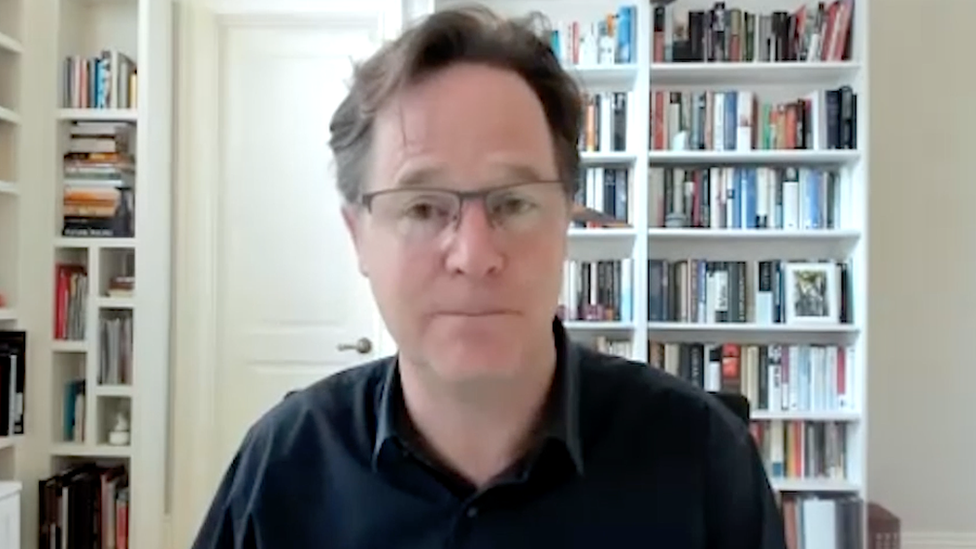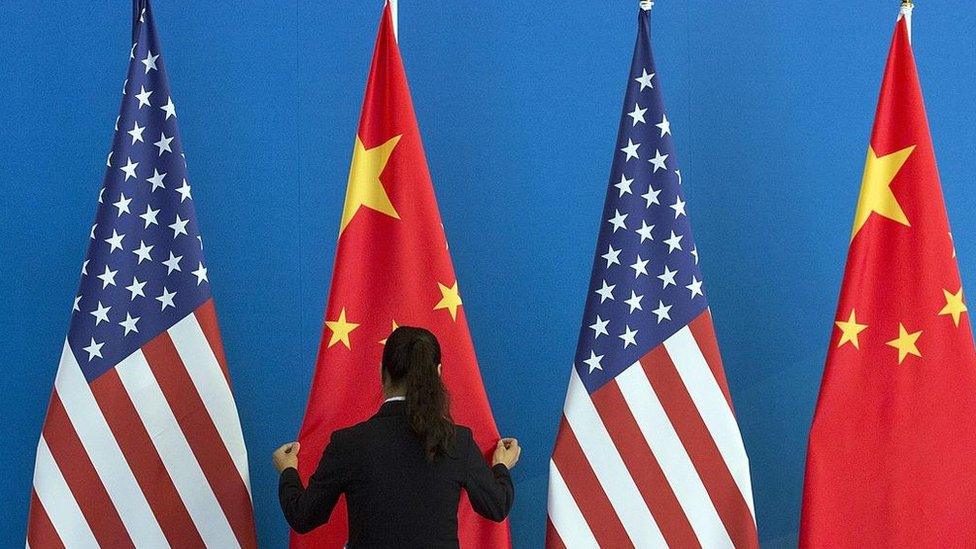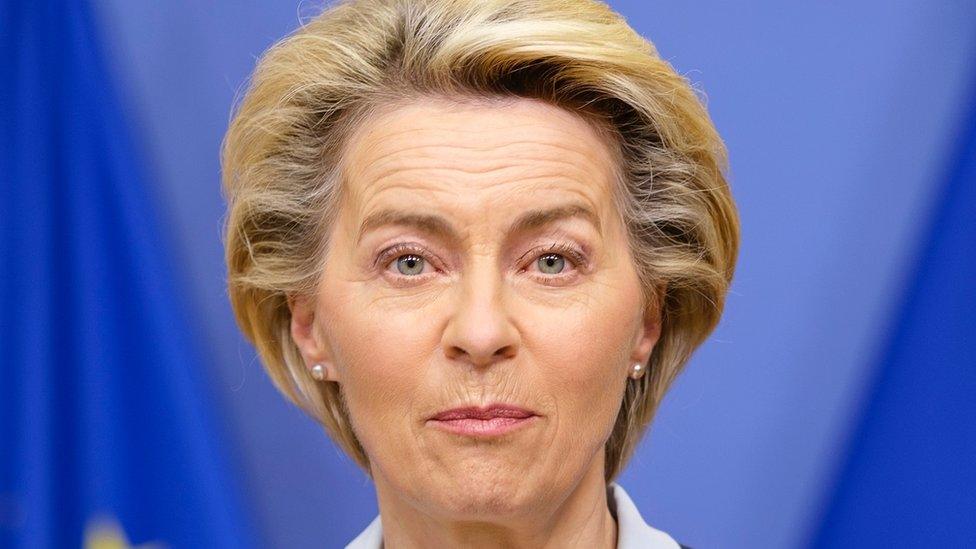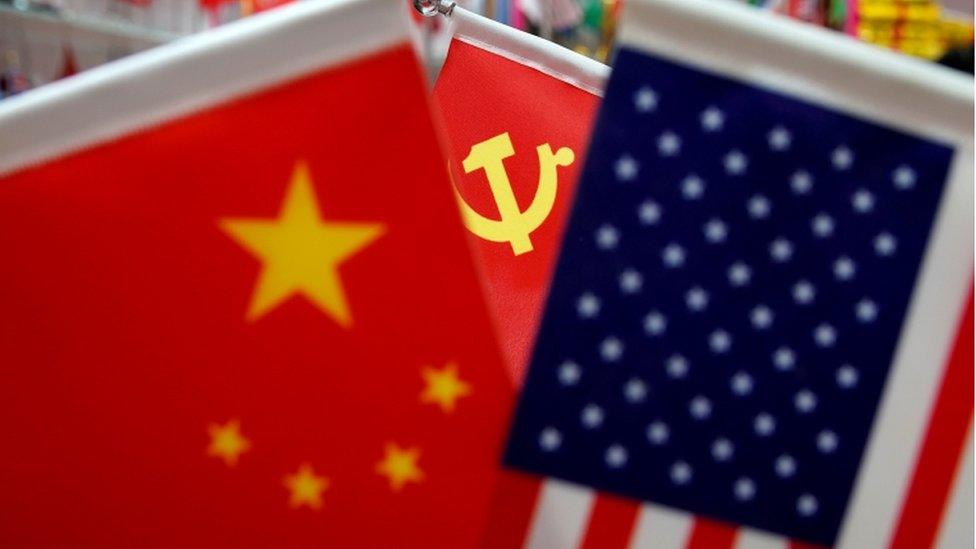Web Summit: Facebook urges Biden to restore global internet
- Published

Nick Clegg joined Web Summit remotely from Silicon Valley
Joe Biden should tackle the splintering of the global internet as one of his top tech priorities when he becomes president, Facebook's head of global affairs has told Web Summit.
The Chinese internet operated on "a completely different set of values" to Silicon Valley's "seamless and open" approach, Nick Clegg said.
He also berated the European Union for its "zealous focus" on regulation.
But he did not address the spread of misinformation on the platform.
"The global internet doesn't exist," Mr Clegg said in a conversation with John Micklethwait, Bloomberg's editor-in-chief, at the Web Summit conference, which this year is online-only.

The US and China have clashed repeatedly in recent months, over trade, coronavirus and Hong Kong
"There are two paradigms struggling for supremacy," he said - with Turkey, Vietnam, Russia and Pakistan all attempting to emulate China's "censored" version.
This fight for the future of the internet had been side-lined by three separate debates, he said.
The US is focusing on whether big tech firms need to be broken up; Europe is obsessing over data sovereignty and privacy; and the Indian market is concerned about the security of platforms such as WhatsApp.
Mr Biden needed to work "urgently" on finding common ground between the three to ensure the US had more say over "shaping future internet rules" rather than China, said Mr Clegg.

The President of the European Commission, Ursula von der Leyen, has announced rules for digital content
The flood of misinformation on Facebook was not discussed, despite the fact that the social network has just announced that it will act to remove misinformation about vaccines, including false claims that they contain microchips or other ingredients they do not, and claims that they cause side-effects that have been debunked by public health experts.
Earlier this week at the same conference, the President of the European Commission, Ursula van der Leyen, announced that tough new rules were coming which would force social networks to take down harmful or illegal content more swiftly in Europe.
Mr Clegg did not refer to this, but said that he believed the EU had too much "scepticism about how data is aggregated at scale".
And he added that Europe was in the "unusual position" of not being home to any of the major tech platforms while being "an outsized global player when it comes to the rules of the internet".
It could better spend its energy attempting to create a single digital market across the EU, he added.
Data carpenters
But he did acknowledge that things had changed since the early days of Silicon Valley's "move fast and break things" philosophy.
The engineers employed at Facebook when it launched 15 years ago treated data like enthusiastic carpenters would a piece of spare wood, he said.
"Engineers were building these tools almost with stuff that was lying around, thinking we could do ingenious things with it, and everyone was applauding them."
That rightly needed to be done now in a "proportionate, accountable and time-limited way", he said.
And he hinted at a clash at Facebook between politics and engineering.
"I find myself having to explain to impeccably logical engineers that the ebb and tide of public sentiment and political concern are not always rational - but politicians still need to be respected and taken seriously."
- Published3 December 2020

- Published2 December 2020

- Published2 December 2020
